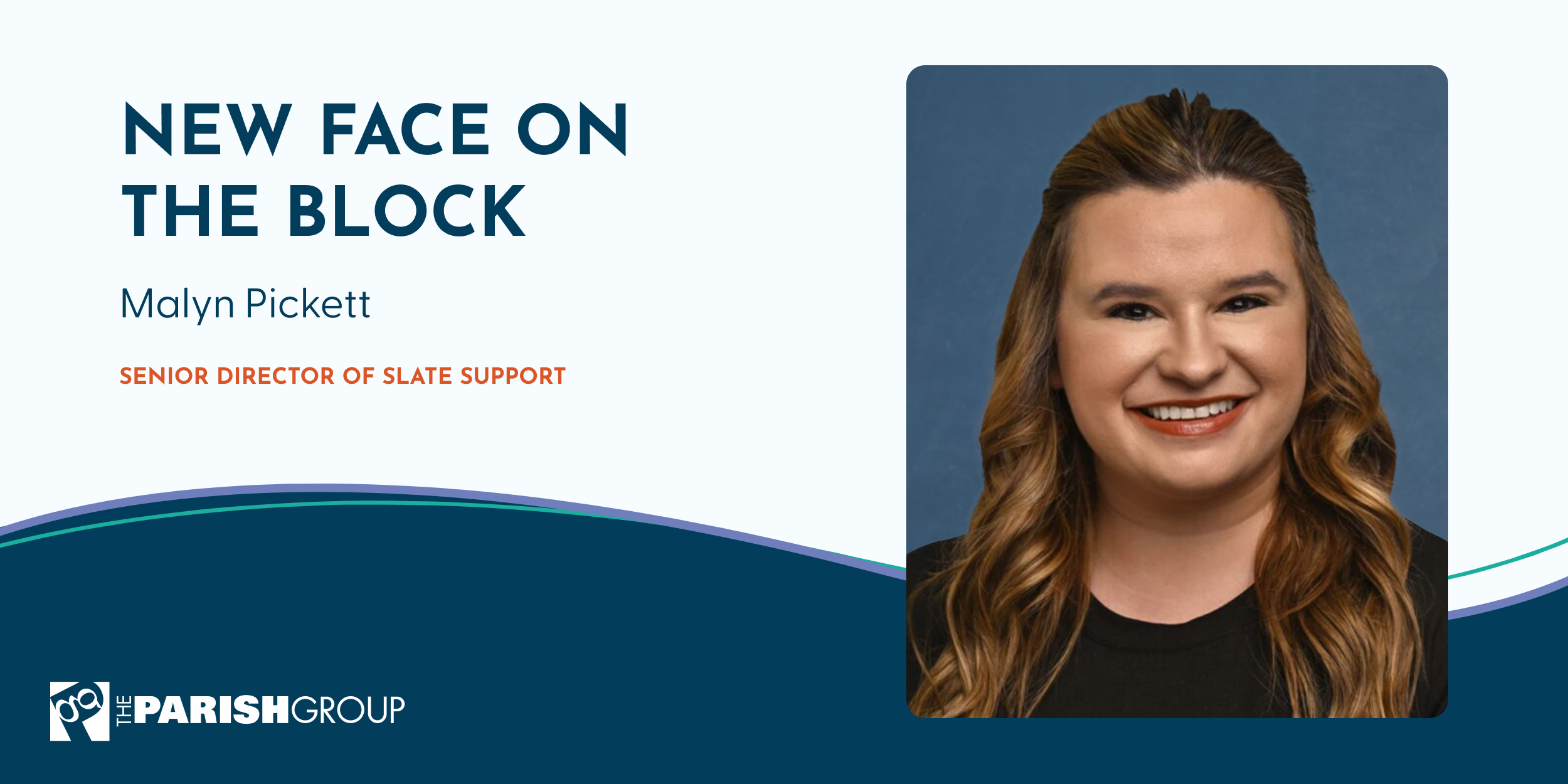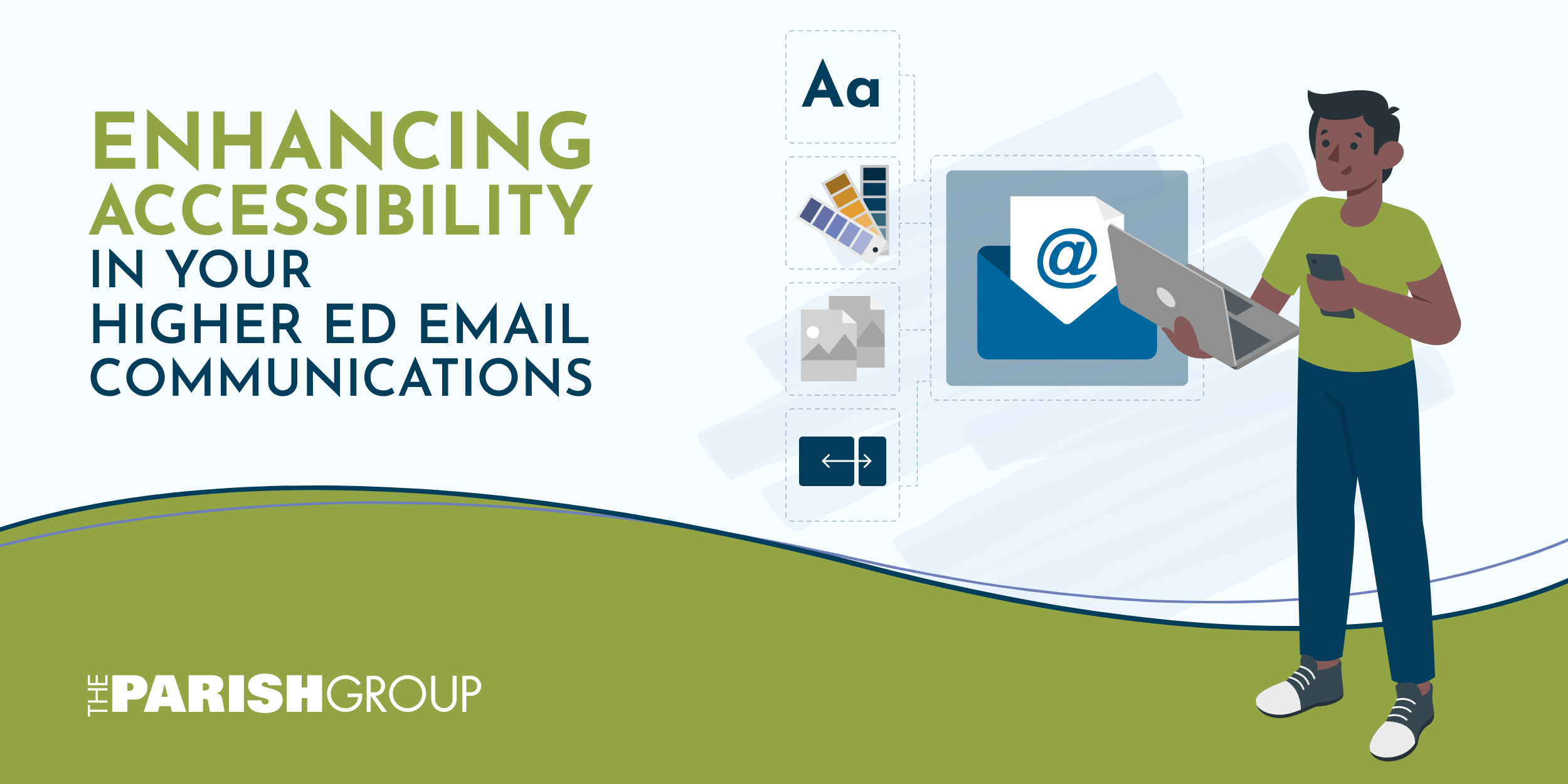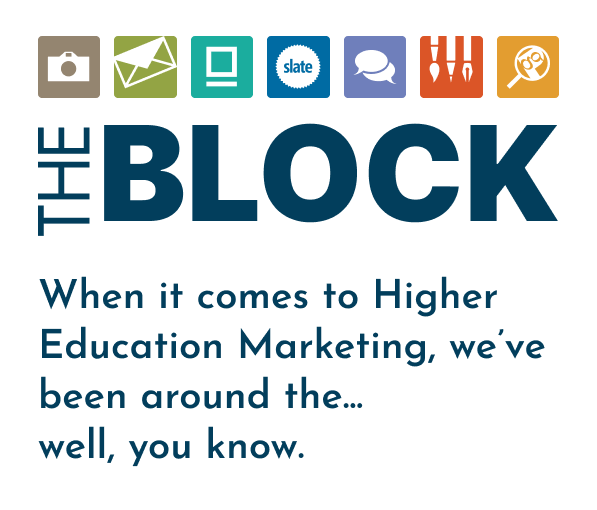
A recent article from the Wall Street Journal caught our attention. In it, writers Jeffery Selingo and Matt Sigelman pose a new solution to the familiar crisis-of-confidence when it comes to higher education.
The two discuss the absence of a shared vocabulary when it comes to employers and job-seekers, especially ones fresh out of colleges. ‘Microcredentials’ such as project management, negotiation, data analysis, and the likes are top of mind for hiring managers.
But are students seeing how they gain these skills in the classroom? Selingo and Sigelman say no.
For the record, students absolutely acquire these skills as they work towards their degree. They just may not realize it.
This got us thinking about how we can incorporate skill-based language and outcomes into higher ed marketing strategies. After all, the lack of faith in higher ed starts at the top of the funnel.
How the Economy Can Work in Higher Ed’s Favor
Students have been asking for years to be taught real world skills in the classroom. With the volatility of the economy Gen Z grew up in (we’re looking at you, 2008) and current fears of an incoming recession, it’s time for us to take college for what it is: a stepping stone towards a stable career and income.
We know that people enroll for economic reasons. During the 2008 recession, 11 million U.S. citizens were unemployed. Yet enrollment into colleges and universities increased for certain age demographics. For 21 year olds, their enrollment numbers were up by 20%.
Because market shifts often impact hourly wage workers, non-traditional degree seekers went back to earn them.
In most economic upsets, those with college degrees have lower unemployment numbers than those without. Our marketing efforts need to highlight this reality and utilize more corporate language to emphasize this fact.
Helping Schools Stand Out
For moderately selective institutions with lower brand recognition, it’s a struggle to stand out from the pack. Finding and promoting discriminators can be a difficult task. State of the art technology, beautiful campuses, and lively tight-knit communities can be found in many admission marketing materials, regardless of school.
At The Parish Group, we’ve conducted focus groups with numerous institutions across the country, who have had key stakeholders tell us that their institution is completely unique for its sense of community.
But when everyone’s unique, no one is.
The small pond syndrome many schools market can easily be found with institutions of a similar size.
What needs to be sold are actual points of variance: the layout of the curriculum, how it affects holistic learning, opportunities for peer and professional mentorship, the average salary six months after graduation, the plan to set in place for utilization of the alumni network for internship and career placement.
And rankings aren’t enough. The value has to be underscored in a way that immediately resonates with the values of prospective students and their families.
If these schools can incorporate these aspects into their marketing strategy, it can help differentiate themselves from their competitors.
How to Incorporate Skill-Based Language into Higher Ed Marketing
We’ve established the need to begin marketing higher education to students and parents in a way that shows a direct link to career-readiness. But how do we do this?
During value presentations, we can showcase to prospects and their families the outcomes and career skills that come from a higher ed degree.
If college students don’t share that same language as hirers, high schoolers most certainly don’t.
So if we can be very specific in showing exactly what prospects can do with certain degrees, the stepping stones to get there, and the skills that come with it, they will be more than prepared to verbalize their skill set when they apply to jobs later down the line.
Plus, adding these skills and outcomes into marketing efforts could also signal to parents with degrees and without degrees the quality and value of the education their child will receive at this specific institution.
As marketers trying to build relationships through honest interpretations of flawed systems and skewed marketplaces, we can develop these ideas in discovery and campaign development phases.
Obviously, pinpointing ‘micro-credentials’ will require lots of ‘micro-planning’ and communication across majors to assess what skills are learned in what classes. This is no simple or quick task, but nothing in good marketing is. And if your standard practices aren’t working, it’s time to try something else.
Enhance Your Marketing Strategy with The Parish Group
With 36 years of business under our belts, we’re pros on adapting to an ever-changing market. Our enrollment and higher ed marketing experts have over 100 years of combined experience serving in this industry.
If your school’s marketing strategies need a makeover, we’ve got you covered. Reach out at success@parishgroup.com or call our office at 828-505-3000.







